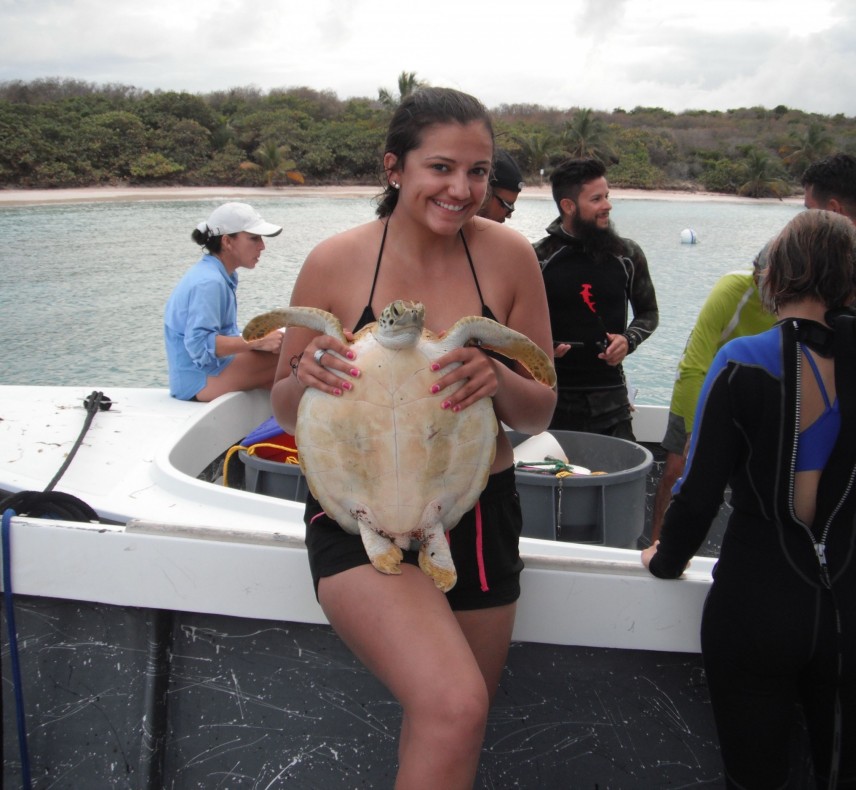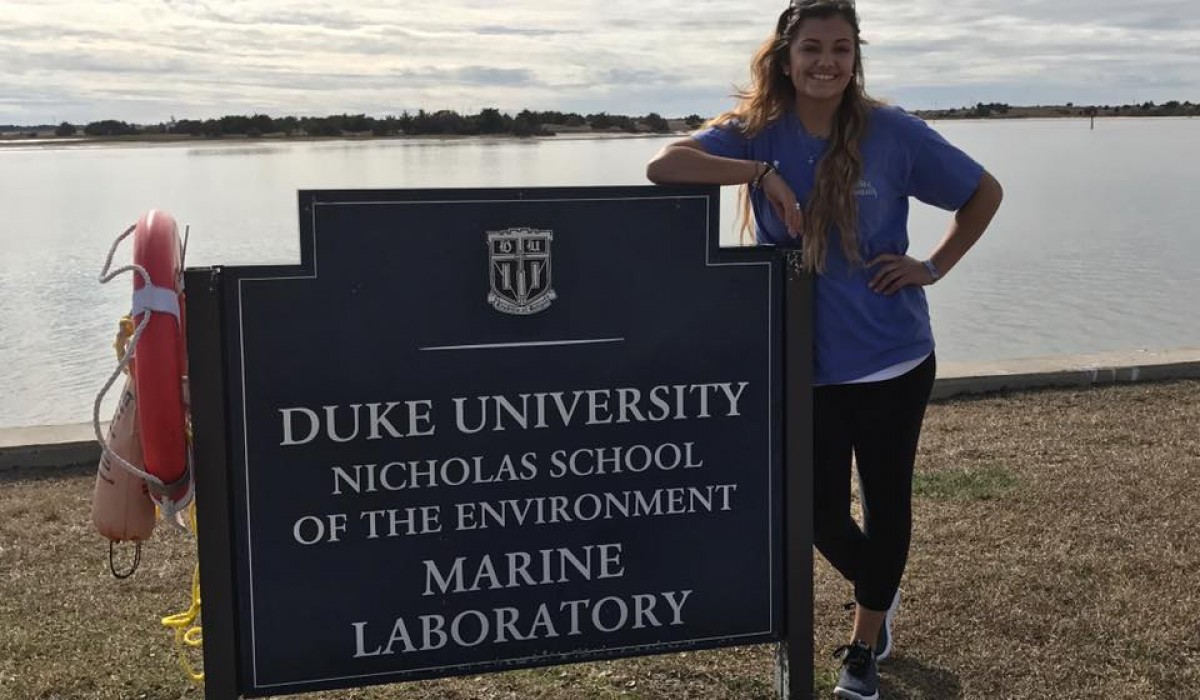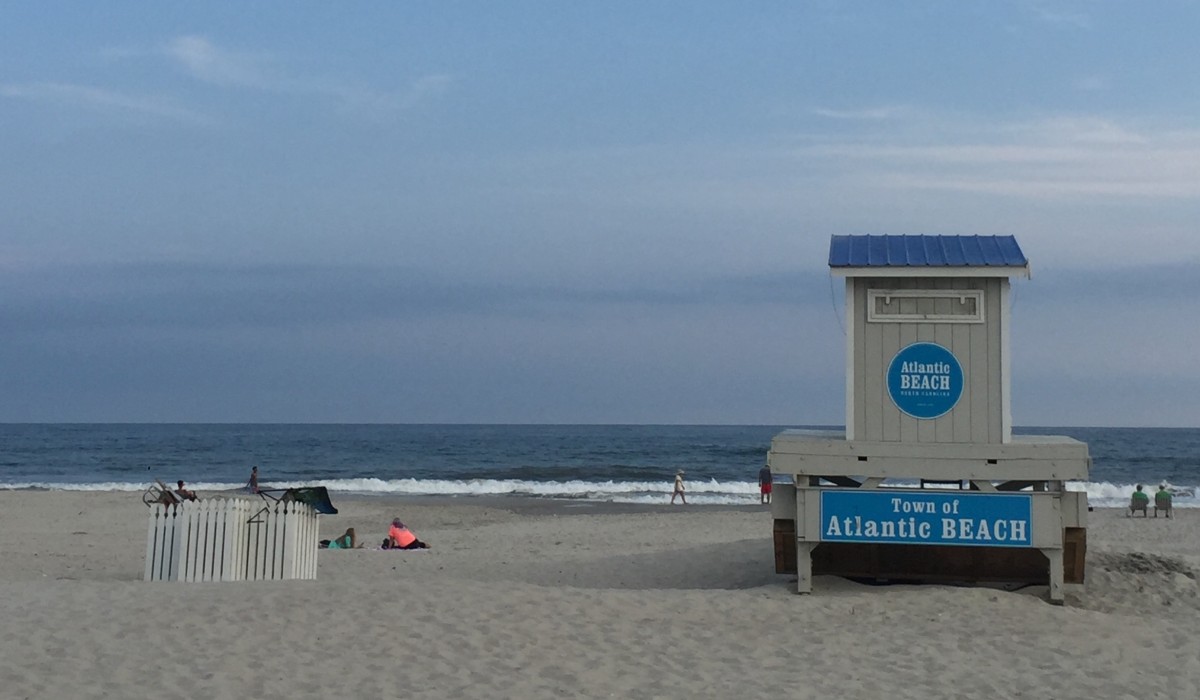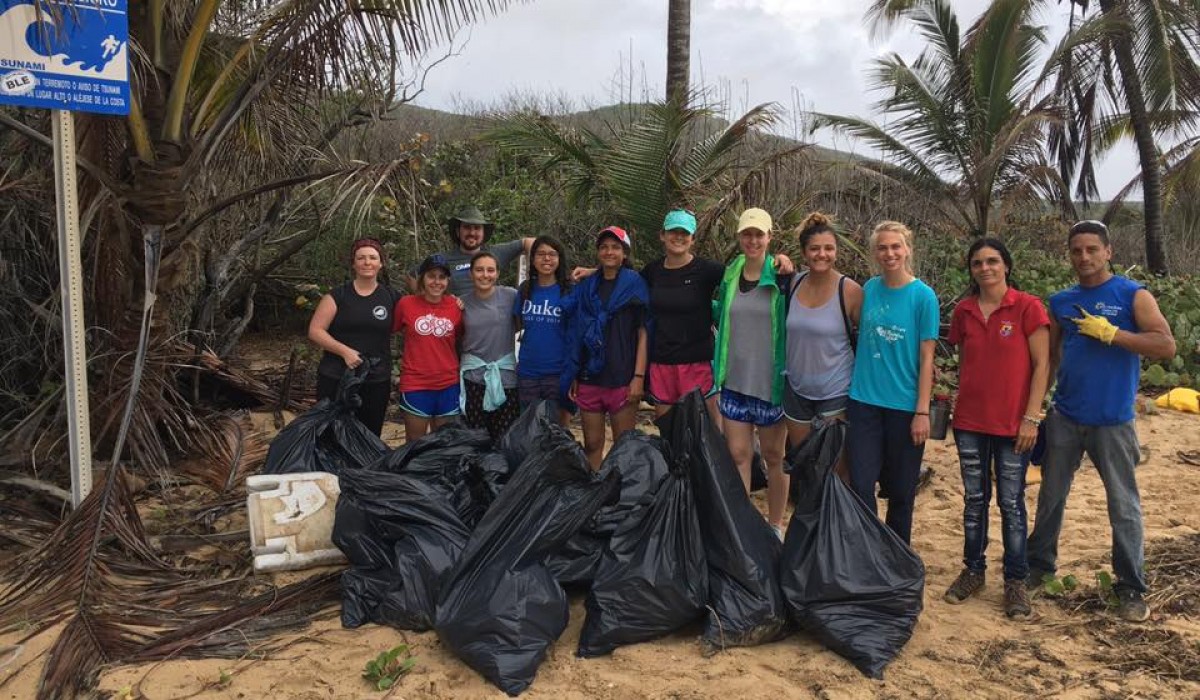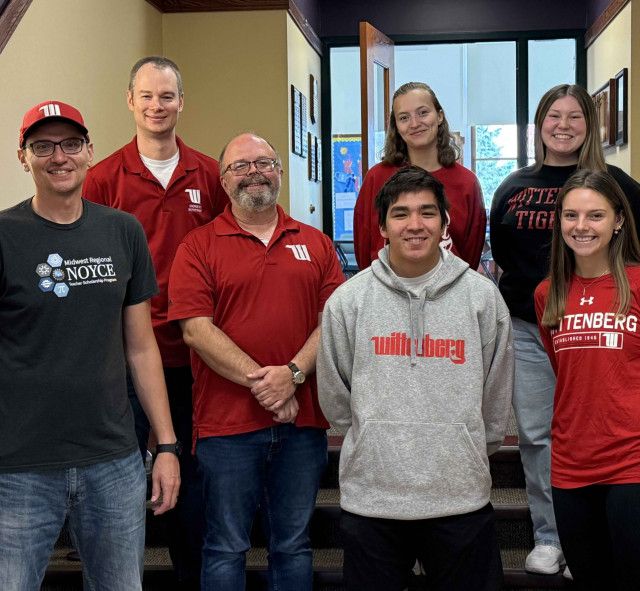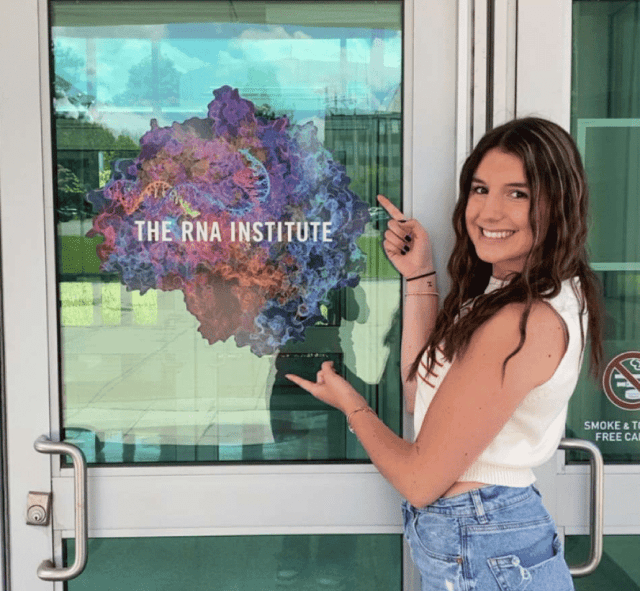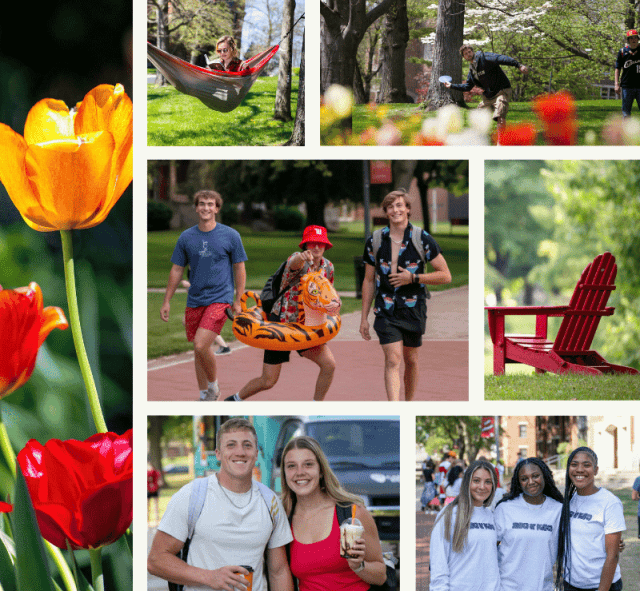Senior shares how Wittenberg’s research opportunities, including the university’s longstanding relationship with the Duke University Marine Lab, have opened exciting doors.
I will be graduating at the end of this semester with a B.S. in environmental science and minors in marine science and biology. My hometown is Lorain, Ohio, which is near Cleveland. At Wittenberg, I have been involved in Gamma Phi Beta, the Marine Science Club, the Witt Late Night Student Advisory team, and the Wittenberg Student Dance Company. I am also a tutor for Upward Bound and a faculty aide.
The spring semester of my sophomore year, I studied at the Duke University Marine Lab in Beaufort, North Carolina. In high school when I was looking into applying to Wittenberg University, I had heard about the Duke semester program, but never thought I would do it. However, in my freshman year at Witt, I learned more about the program through my professors and other students who had gone previously. It sounded like a fun and beneficial opportunity to gain experience in my field, so I applied and was accepted to study there in the spring semester of the following year.
This was extremely exciting because the spring semester at the Marine Lab is set up as a block schedule, which allows some classes to travel. For example, one of the courses I took allowed me to travel to Puerto Rico and St. Croix in the U.S. Virgin Islands for 10 days to gain research experience in the field. This course was on the biology and conservation of sea turtles and allowed me to work with wild sea turtles for the first time and gave me great connections for future internships and opportunities. Along with this course, I was able to take a coastal policy course, an animal physiology course, and complete independent research.
My semester at the Marine Lab allowed me to fulfill credits for my environmental science major, as well as important requirements for my marine science minor. With all the courses I completed, I was able to gain hands-on experience in this field since we were located right on the coast. We took multiple trips to the surrounding barrier islands to collect samples and learn more about coastal environments. I was even able to present my independent research at a symposium during my time at the lab.
There was one other Wittenberg student at the Marine Lab during this semester, and while we were not close when we first arrived at the lab, it was nice to have a familiar face while adjusting to this new place. We ended up becoming great friends throughout the semester, and we both made great connections with the other Duke students and professors at the lab, whom we still keep in contact with. The faculty and students at the Marine Lab have been an added support system, and these additional connections have helped me in this field.
My experience at Wittenberg has allowed me to gain a strong foundation for the next step in pursuing my career while still being close to home. While it may seem difficult to pursue marine science at a school nowhere near the ocean, Wittenberg has given me classroom knowledge, lab experience, beneficial field experiences, as well as strong connections with my professors. All these elements have helped me gain confidence in my ability to reach my career goals. With the help of my professors and peers, I have been able to find internships and research opportunities throughout my time at Wittenberg, which is crucial to my field.
For other students pursuing the field of marine science or environmental science, I would advise you to try and get as much experience as possible during your time as an undergraduate. Whether it be volunteering somewhere or a summer internship, having more experience allows you to learn more than just what you can be taught in a classroom. Internships can also help you learn more about your likes and dislikes, which can help you figure out a future career path if you are unsure. I would also recommend building connections with your professors and other individuals you meet throughout your college career. For me, my professors have been there to help provide advice and even help me find different internships, which has been extremely helpful.
After leaving Wittenberg in December, I am hoping to be able to assist with a sea turtle conservation project for a few months. After gaining more experience in marine animal conservation field work, I am planning on attending graduate school in marine conservation or marine ecology. While I do not have a specific final career goal in mind, any career where I am able to help marine animals and the environment, whether it be through research or field work, will make me happy.
Skyler Klingshirn ‘19
Major: Environmental Science
Minors: Marine Science and Biology
Hometown: Lorain, Ohio


